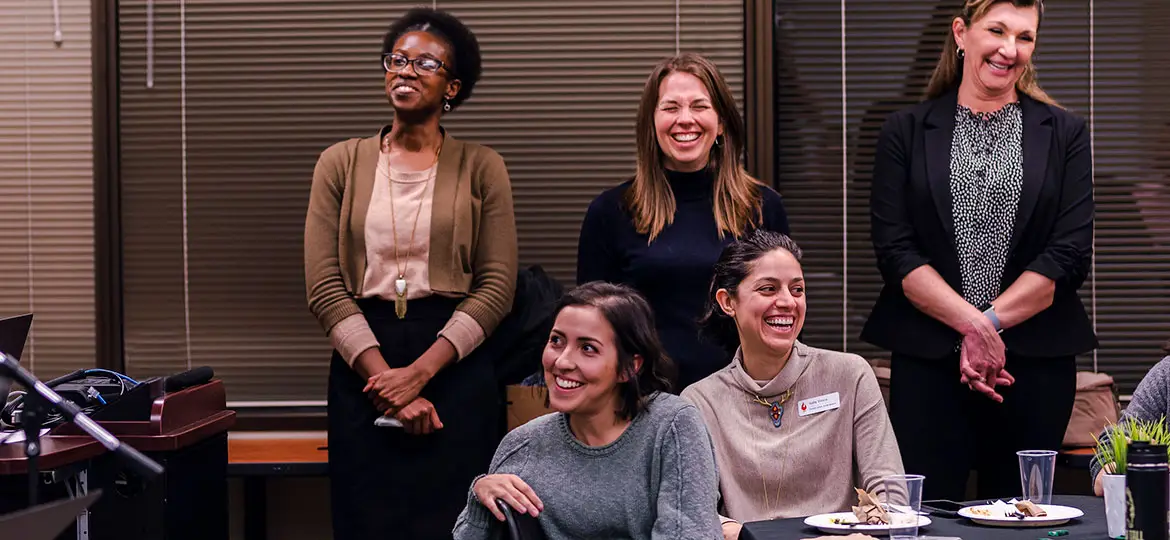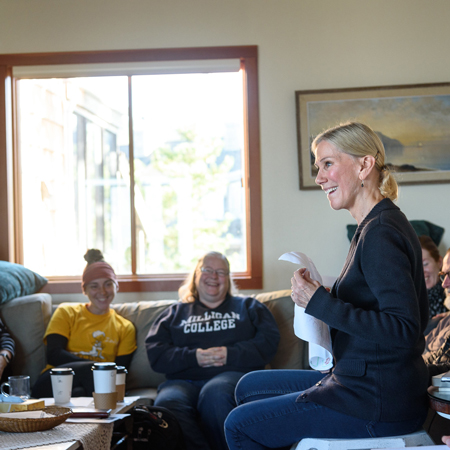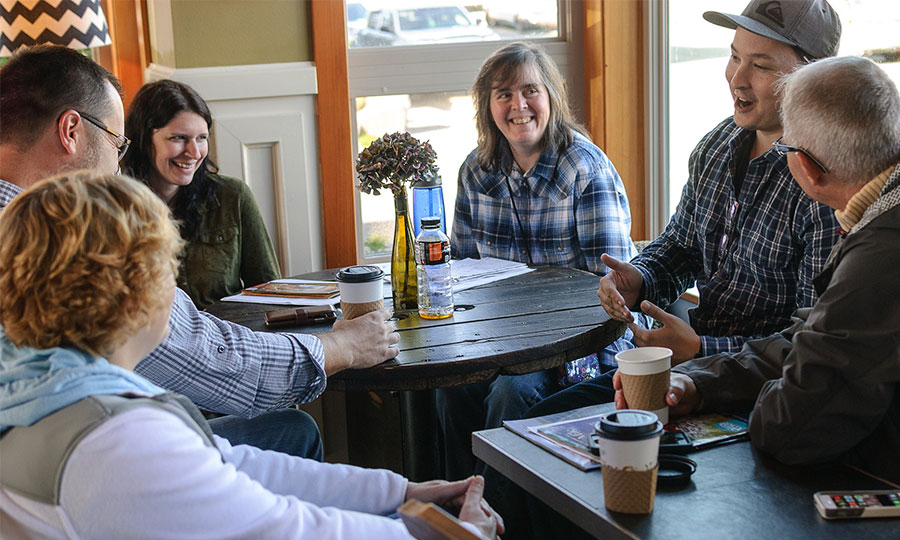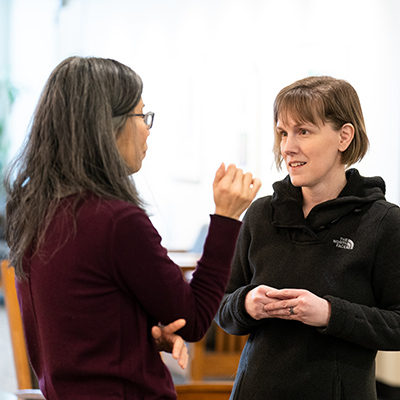
Women in Ministry
A Seminary That Reflects God’s Vision

Join a seminary where women are empowered and a place dedicated to the training and formation of all students without regard to gender.
To Reflect God’s Kingdom
We believe that both female and male leaders are equal in authority, and that both are vital for fulfilling the nature and mission of the church; if one group is absent, God’s mission suffers.
We prioritize giving women and men equal access to a seminary education and training because we believe that is God’s plan.
Biblical Basis for Women and Men in Ministry
Women in senior levels of leadership in the church is not embraced by all Christian denominations. However, with careful biblical, historical and theological scholarship, we believe God's will is for the equal inclusion of women and men.
Search the Scriptures with us and find evidence that the Holy Spirit continues to gift both women and men in all aspects of leadership, eldership and service in the Christian church. Here’s the evidence:
-
Identity
Male and female are given equal authority (Genesis 1:26-28) and are designed for partnership (Genesis 2:18).
-
Holy Spirit Gifting
The New Testament emphasizes that every Christian is gifted by the Holy Spirit for building up the body of Christ and for service in the world (see 1 Corinthians 12:4–31; Romans 12:3–8; Ephesians 4:7–16; 1 Peter 4:8–11).
-
Biblical Precedence
In the Old Testament, Deborah was appointed by God as the leader over Israel in the time of the Judges (Judges 4:4-5; 5:31). While the New Testament speaks minimally to ordination as it is practiced in churches today, there is evidence that the Holy Spirit gifted women for leadership and other ministerial responsibilities in the apostolic era. Women leaders included Mary, the mother of Jesus (Acts 1:14); Priscilla (Acts 18:26); Phoebe (Romans 16:1); Junia (Romans 16:7) and Nympha (Colossians 4:15), just to name a few.

Will I Be Welcome?
A Safe Place for Generous Dialogue
To answer your question, yes! We’re not afraid to encounter the hard theological discussions that shape the concerns of our culture today. But we also believe that, to do this well, we have to foster spaces for disagreement under the safety net of grace and kindness.
We know that the role of women in the church is controversial in many churches, traditions and ministries. Many will point to Jesus’ 12 male disciples, Paul’s admonition to Timothy to not permit a woman to teach over men (1 Timothy 2:11), biblical texts that appeal to the creation order of Adam formed before Eve (1 Corinthians 11:8; 2 Timothy 2:13-14), and church tradition as reasons why women are not permitted for leadership or pastoral roles. However, the larger God story of redemption and re-creation supports women in leadership.
Whether you’re pursuing a master’s degree or a doctoral degree, we’ll continually engage in this conversation throughout your time with us. Here’s how:
- By providing strong female and male role models
- Giving institutional support
- Prioritizing teaching that breaks down gender stereotypes and encourages women and men to flourish according to God’s calling
So yes, we’ll encounter the hard questions, but we’ll always exercise those conversations with kindness, grace, and self control.
Lilly Grant: Giving Women Preachers a Voice

Lilly Endowment Inc. has awarded George Fox University a $1.25 million grant to support efforts at Portland Seminary that will help Christian women preachers strengthen their abilities to proclaim the gospel in more engaging and effective ways.
George Fox University is one of 81 organizations to receive a grant through Lilly Endowment’s Compelling Preaching Initiative. The initiative’s aim is to foster and support preaching that inspires, encourages and guides people to come to know and love God and to live out their Christian faith more fully.
The grants, which total more than $95 million and range from $275,400 to $1.25 million each, were awarded in a competitive second round of the initiative to organizations that represent a broad spectrum of Christian traditions in the U.S. They include mainline Protestant, evangelical, Catholic, Orthodox, Anabaptist and Pentecostal faith communities.
Portland Seminary will use the grant to partner with the Leadership Center and Religion for Her to provide participants with seminary-level training in biblical and theological studies, preaching in multicultural contexts, spiritual direction and spiritual formation, professional networking, and peer mentoring to support their vocational development as preachers.
Upon the completion of the one-year program, cohort participants will receive a Certificate in Biblical Foundations for Multicultural Preaching from Religion for Her.